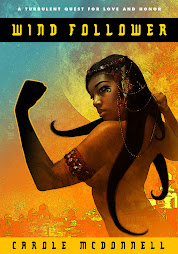Genre: Family
MPAA rating: G
www.luminousfilms.net
UPC: 858154001004
ISBN: 0-9773287-0-8
56 Minutes
DVD SRP: $14.98
Street Date: 10/24/06
Distributor: Pro-Active Entertainment
Distributor email: videots@aol.com
Distributor tel# 818-632-4200
Winner "Best Feature Film for Kids" 2006 Moondance Film Festival, Los Angeles
My Ratings: Fair
I really hate giving bad reviews. I especially hate giving bad reviews to Christian films. And I really hate giving bad reviews to Christian films which the heartland simply adores. (Yes, I was one of the few Christians who thought Mel's "Passion of the Christ" was not that good a film. Anyway, notwithstanding the fact that Mr Christmas won "Best Feature Film for Kids" at the 2006 Moondance Film Festival, this is not a film I would recommend for anyone over the age of five. And the problem is that any story or sermon that depicts young children there is often a great probability of sentimentality. Mix that sentimentality with poverty and Christmas and well, one has a sentimental mess. In this case, we have a story which purports to teach us about the true meaning of Christmas but which is pretty much about supporting the belief in Santa and the gooey notion of the magic of Christmas.
The story takes place in December of 1941 when Joel, a father more interested in giving in his daughter’s happiness than in his wife’s, his long-suffering must-keep-up-with-the-Joneses wife, and their two daughters are going through some financial disciplines. The children are young so they don’t understand that money is hard to come by. But it doesn’t seem as if they understand much about generosity or self-sacrifice either. These kids are typical American children who have been trained to believe that Christmas is about receiving what they want. Their parents, never seen praying to God, but whose wholesomeness we are to believe in because the story is told in a nostalgic haze when God was taken for Granted, are avidly supporting the cult of Santa Claus. Indeed, the need to support the children’s belief in Santa Claus is so important to this family that the only time we even see Joel vaguely praying – very vaguely– it is because he is afraid his children will be disappointed by the Santa mythos. He even grows self-righteously angry at God at this...as if God owes him.
It is fairly common – though uncomprehensible to me– to set faith/Christmas stories in a nostalgic place and time in the heartland. The perfunctory good black person is of course shown, and I suppose I should be happy for that bit of multiculturalism but somehow the why-is-it-there scenes showing the family’s reaction to the Japanese bombing of Pearl Harbor made me wonder if the filmmakers were trying to echo/link to the Iraqi War. Indeed, this film is so soaked in Americana that it coats Christmas with too much of the worst of the American dream. One of the most telling scenes of the film shows the scary subtext of the film. When Joel and Carolee go out to chop down a tree for Christmas, she chooses the largest tree. He informs her that they cannot fit it inside the house. She assures him that they can. He therefore agrees to do it. I suspect the scene is supposed to show the exuberance of childlike faith, but it just made me think that the kid was imbued with childlike selfishness and needed to think of giving instead of taking. Throughout the film, I found myself waiting for the moment when the sacrificial father stopped giving in to this daughter.
It is strange when a film seems to be saying one thing but in its subtext seems to be saying something else. At the end when the surprise occurs which, we assume, teaches the family the true meaning of Christmas, the analytical viewer leaves the film feeling a bit uneasy. We have been treated to a film about a family divided, where the father considers the wife’s need less important than the child’s, where a child’s desire to receive is satisfied, where God – Santa– comes through for people who hardly acknowledge him except in anger because he has not given. We hardly care that she receives a "better" gift– all we wanted was for her to learn how to give.
All this, plus the nostalgia, makes this film a sad and noble failure but a masterpiece of sentimental kitsch which shows more of the American mentality than the true idea of sacrifice which, I suspect, is the true meaning of Christmas.









